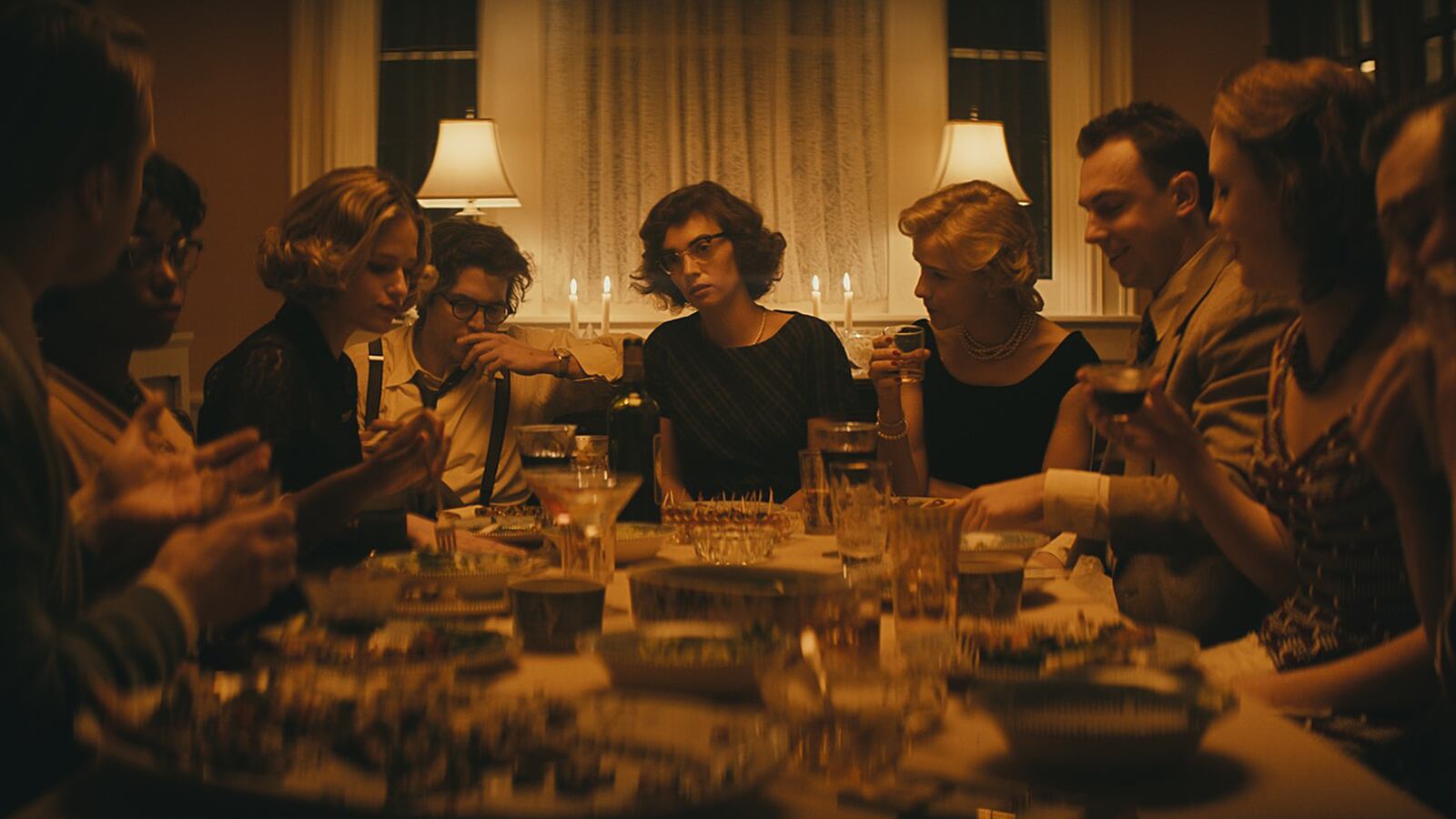Wildcat, the Ethan Hawke-directed, Maya Hawke-starring Flannery O’Connor biopic, begins with a trailer for an entirely different movie, a black-and-white drama about “Star Drake,” the alias of a character from O’Connor’s short story “The Comforts of Home.” Star Drake was dubbed the town floozy who pays for everything with bad checks. The trailer feverishly describes the plot as “the outspoken story of an indiscreet woman,” a phrase that could indeed describe a movie about the author herself. But the film that follows is muted, restrained, even dreamlike, a portrait of an artist that paints her life—controversial, complicated—according to her work.
Maya Hawke plays Flannery at the cusp of her battle with lupus, the disease that took her father’s life when she was a teenager, and that will claim her own at 39. The film follows along as her mother Regina (Laura Linney) transfers her from her short stay in New York amongst the literary luminaries of the time, back home to Georgia and the childhood farmhouse in which Flannery will spend the rest of her life. Hawke and Linney circle each other, as mothers and daughters with prickly relationships do. Regina has read her daughter’s stories but isn’t exactly a fan: “I don’t understand,” she says mincingly. “Why you don’t want to write something that people would like to read?”
Between these scenes, the film dramatizes a few of O’Connor’s short stories, including “Revelation,” “The Enduring Chill,” "Everything that Rises Must Converge,” and “Good Country People.” In a burst of stylistic flair, Hawke and Linney and the rest of the film’s main cast appear as the characters in them. They appear almost as visions, with Hawke as Flannery “playing” her analogs—a young college student, an aspiring writer with a loudly racist mother, an easily charmed girl with a wooden leg. Linney appears as the mothers, the spinsters, and, in one of the film’s better sections, the woman at the center of “Revelation,” who reacts in horror when her vision of Jesus Christ says he is able to reincarnate her as either white trash or a Black person, before choosing the Black person (for which she uses a different word).
These vignettes and the main narrative arc are shot with the same dim color palette and soft lighting, worldbuilding with a heavy touch of the spooky Southern landscape that inspired O’Connor’s Gothic tales. There’s an appropriate coldness to everything. Bare trees claw at skies so blue they’ve turned green. Grasses have dried and browned while urban architecture sharpens and pokes. Hawke, folded into a bench on a train, stuffs handfuls of newspaper into the lining of a coat too thin for the weather.

Ethan Hawke and Maya Hawke on the set of Wildcat
Steve Squall/OscilloscopeAside from the forbidding aura, Ethan Hawke and co-screenwriter Shelby Gaines have deliberately chosen not to shy away from O’Connor’s more unpleasant subjects and attributes (read: racism) that she depicts with harsh realism in her grotesqueries of small-town politics, of rural ecstatic Catholicism, of everyday people enacting everyday cruelties on one another just because they can. But it also fails to really reckon with who O’Connor was, and her shifting legacy.
In Wildcat, the author is shown as someone who looked askance at the casual, horrifying prejudices of the day, instead of someone who also openly subscribed to them. It’s unable to hold these two clashing ideas at once, and because it likes its main character, the film is unwilling, past a certain point, to be critical in the way that criticism of her and her work has broadened in recent years.
Wildcat is at times just as creative and effective and darkly funny as its subject, but unlike O’Connor, it’s also a little too nice. It’s for the fans, not the critics, and in that way shows a frustrating unwillingness to go just a little bit further, to prod just a little bit deeper. The Hawkes clearly respect O’Connor and her work, and perhaps it’s that affection that clouds their ability to treat her in the same way she treated her characters, opening them up from the inside out to show their guts as well as their beating hearts.






